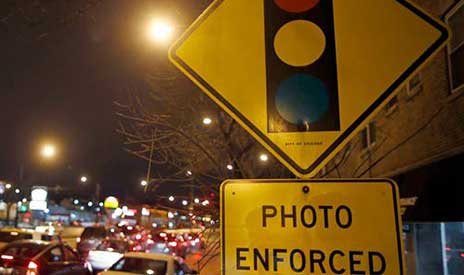Personal Injury FAQs
If you’ve been injured in an accident and believe someone else is to blame, you may have a lot of questions about your legal rights and whether you can obtain compensation for your injuries. The personal injury lawyers at Bley & Evans offer free consultations, so you can call us at 844-443-8385. You may also find the answers you’re looking for below.
What’s the definition of personal injury?
Personal injury is a term used to describe severe physical, emotional or mental harm, including death, that occurs due to someone else’s intentional action, inaction or negligence.
What is negligence?
Negligence is a legal theory used by an injured party to try to recover compensation for the injuries and economic losses that occurred as a result of an accident. In a negligence case, the plaintiff has the burden of showing that it’s more likely than not that …
- The defendant owed the plaintiff a legal duty or obligation (normally to act as a reasonable person in the situation);
- The defendant breached that duty or failed that obligation (to do or not do something);
- That breach was the factual and legal cause of the plaintiff’s injuries; and
- The plaintiff suffered harm for which, under state law, he or she is entitled to compensation.
What may have been negligence varies with the situation and the applicable law. Just because someone was harmed as a result of another party’s action or inaction doesn’t necessarily mean that negligence took place.
If an elderly person falls and is injured at a nursing home, negligence may or may not be involved. If the area is well maintained, well lit and there’s no indication in the person’s past or in his or her medical records that he or she was likely to fall, negligence probably didn’t happen. If the person fell several times before, he or she is a known risk to fall, the floor has been wet for a long time, the facility is understaffed and no one was there to help the resident walk, negligence probably was a factor.
If a person dies because of another party’s negligence, what rights do the surviving family members have?
Missouri law may allow a family to pursue a claim of wrongful death against the party or parties responsible. That option is available first to the spouse, children, or a parent of the victim; and if none of those relationships exist, the victim’s brother or sister, or their children, may file the claim.
Is there a limit to the amount of compensation an injury victim, or the victim’s family, can receive?
It depends on several factors. There is no limit on damages for medical costs and lost wages. In cases involving death or a permanently disabling injury, the victim can seek compensation for “pain and suffering” such as loss of enjoyment of life or loss of companionship with another.
Missouri limits pain and suffering damages at $400,000 in medical malpractice cases. If the victim dies or suffers a catastrophic injury, such as paralysis, the non-monetary damage cap is $700,000.
A court may also decide that a plaintiff is entitled to punitive damages, which are awarded in rare cases where a party’s actions were extreme and egregious, to punish the party (within limits) and discourage him or her and others from taking the same actions.
Do all personal injury cases end up in the courtroom?
Though many personal injury lawsuits are filed after the parties can’t reach a settlement agreement, the vast majority of cases settle before the case goes to trial and a jury decides the outcome.
What happens when more than one party is at fault in a personal injury case?
When multiple parties are involved in a personal injury claim, such as a multi-car accident, law enforcement tries to sort out the reasons for the accident and who was at fault. Insurance companies, their attorneys and attorneys for injured parties conduct their own investigations and may hire experts to recreate the accident to determine why the accident happened and who was at fault.
Missouri has a comparative fault law. An injured person who shared some of the blame for the accident can collect damages, but the amount would be reduced to reflect his share of fault. If the plaintiff is considered to be 20% at fault, the damages awarded would be reduced by 20%.
Who actually pays the money to plaintiffs, once the court determines the amount of the award?
Compensation in personal injury cases normally comes from the insurers of the party or parties most responsible for the accident. In some vehicle accident cases, the party most at fault has no insurance, or the coverage isn’t enough to fully cover the plaintiff’s losses; if the plaintiff carries uninsured and/or underinsured motorist coverage, his own policy should pay damages.
Bley & Evans always seeks the best outcome for our personal injury clients, which may mean pursuing multiple parties in a case, to maximize available compensation for their injuries and losses. If you have questions about an accident you were injured in or need help with your personal injury case, contact us online or call us today to get started.















